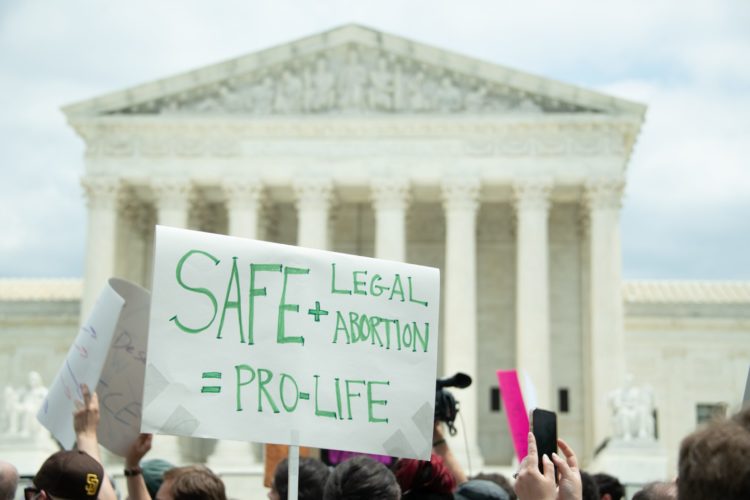
The Future of Abortion in America
The Supreme Court’s effective repeal of the longstanding Roe v Wade decision sparked political and public turmoil this summer. In a 6-3 ruling in Dobbs v. Jackson Women’s Health Organization upholding a Mississippi state law banning abortions after 15 weeks, the court further declared in the majority opinion that the Constitution does not protect a right to have an abortion. The surprising decision—although leaked in May, still surprising that it actually happened—holds potentially devastating consequences for women across the nation. But the full extent of those consequences may not be completely obvious. For the many Americans who will either be impacted by this development or don’t follow the issue very closely, it’s important to understand what exactly happened, what happens now, and what will likely happen in the future.
Technically, the Dobbs v. Jackson decision didn’t establish an immediate ban on abortion on its own. In repealing the judicial precedents set in Roe v. Wade and its subsequent supporting decision Planned Parenthood v. Casey (1992), the court returned the issue of reproductive rights back to the states by removing the federal-level block on passing abortion bans at the state level. Unfortunately, in several cases this effectively meant an immediate ban on abortions anyway. States with old laws in place banning abortion could now seek to either enforce or reinstate them. More immediately, fifteen states have also enacted “trigger ban” laws which were specifically designed to kick in if Roe was overturned. Some of these laws take effect right away, while others come into force after a short period of 30 days, as in the cases of Idaho, Texas, and Tennessee. Still other trigger bans will require action from state officials to begin them. Overall, while repealing Roe v. Wade didn’t inherently ban abortion, it effectively allowed an immediate ban implementation in several states—forcing abortion clinics to stop providing services on the spot in several places—and cleared the way for other states to start working on abortion limitations and bans as well.
But the story doesn’t stop there. Bans on abortion are the first and most visible result of removing Roe’s protections, but legislatures are already taking actions against reproductive rights to the next level. There are efforts in several states to further restrict abortions by passing laws intended to prohibit their citizens from receiving abortion services or even counseling from providers in other states. A law enacted in Kentucky even before Roe was repealed created new regulations on dispensing abortion pills and even included a component covering extradition of people out-of-state who provide pills to Kentucky residents in violation of those rules. A politician in Missouri introduced a bill allowing private citizens to sue people who aid others in crossing state boundaries to receive abortion services. Other lawmakers in anti-abortion states have gone as far as to threaten laws which would allow prosecutors to review the digital history of defendants in abortion cases to determine whether they have sought counsel or services for abortions and who may have provided them in violation of state bans.
The repeal of Roe v. Wade was far from the end of the debate and political battle over reproductive rights. Abortions face a murky and protracted legal future as the policy once again becomes an element of states’ rights. Several anti-abortion states have multiple laws restricting abortions already in place whose different stipulations will likely have to be worked out as they become active. Divergences between states that protect and prohibit abortion access will certainly pose even more legal questions and challenges as new efforts to extend abortion restrictions beyond state lines continue to grow. What is clear for now is that Roe’s repeal is anything but symbolic. It has had immediate impacts on women across the country, and will make reproductive rights a new and burdensome issue for many new women for the foreseeable future.
Interested in healing America? Order "Magenta Nation" today and get started.
Think people can’t change their beliefs? Read “Love or Loyalty” to see the power of forgiveness in healing relationships and our nation.
Wondering about how families can heal, even after death? Read “Love Eternal... One More Time” to be amused and enlightened.